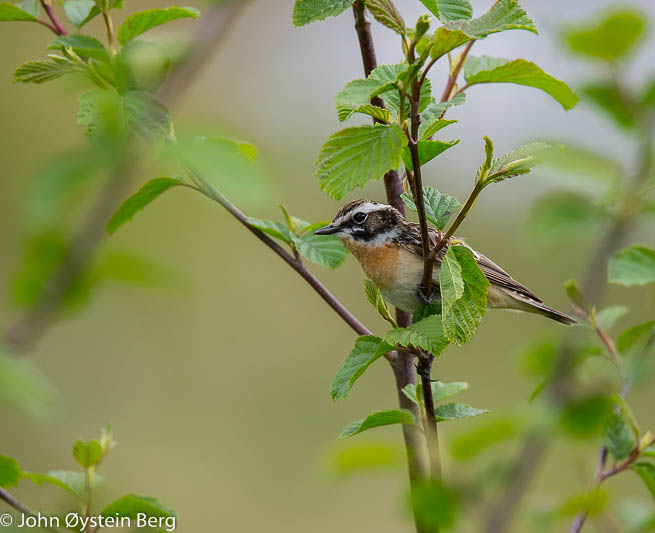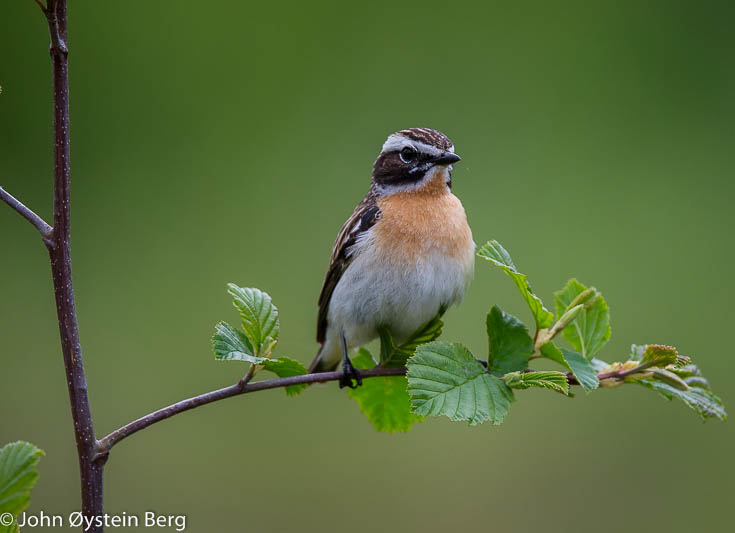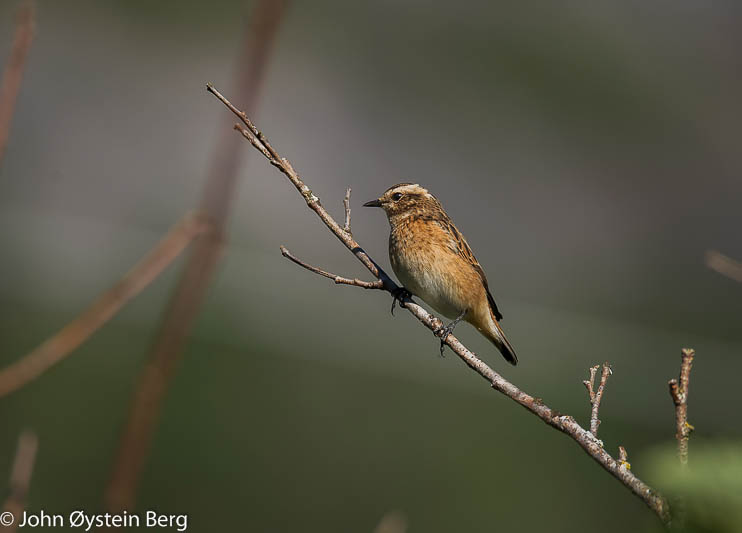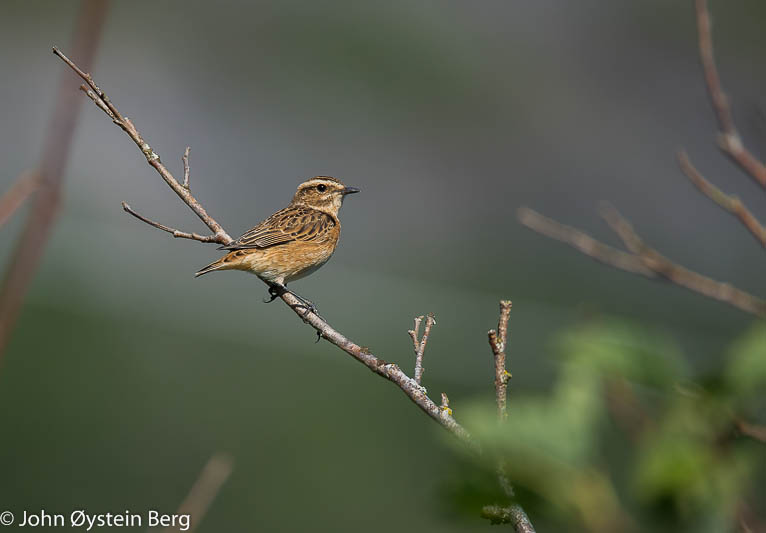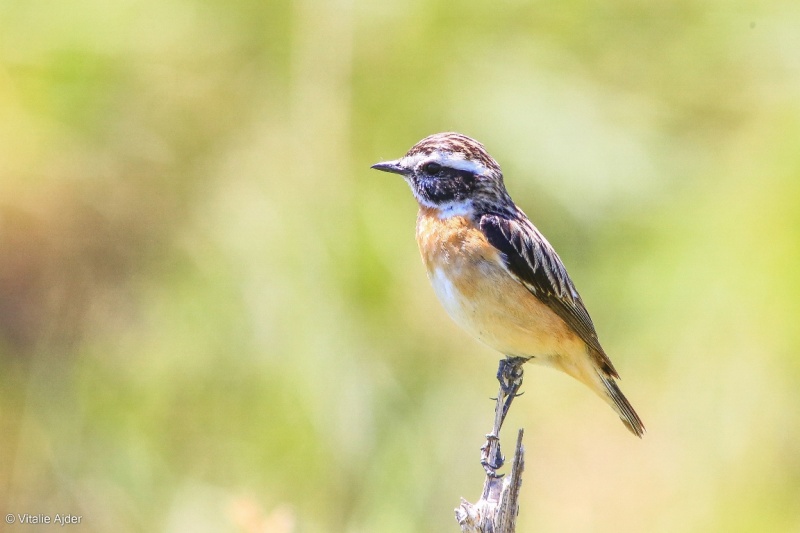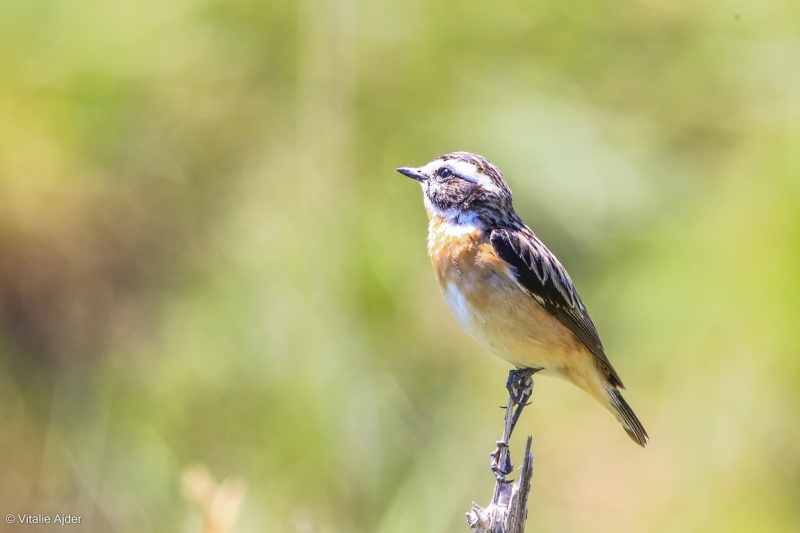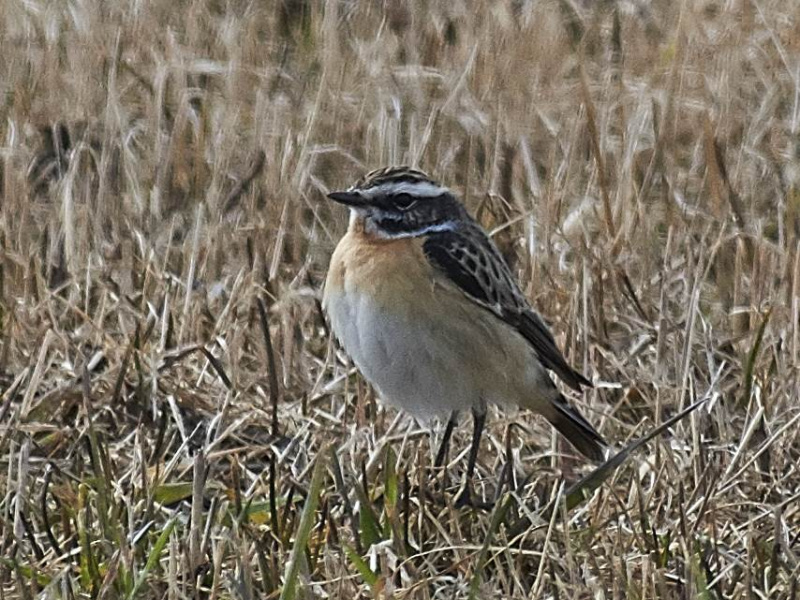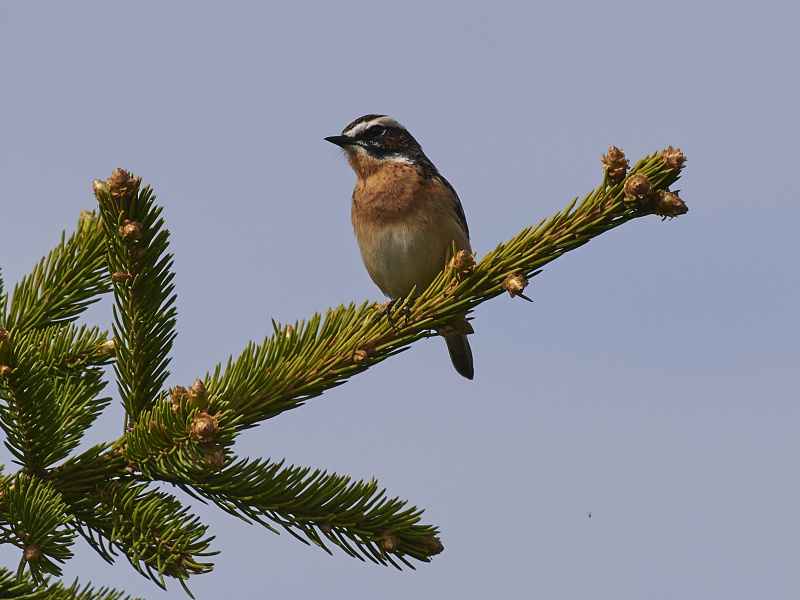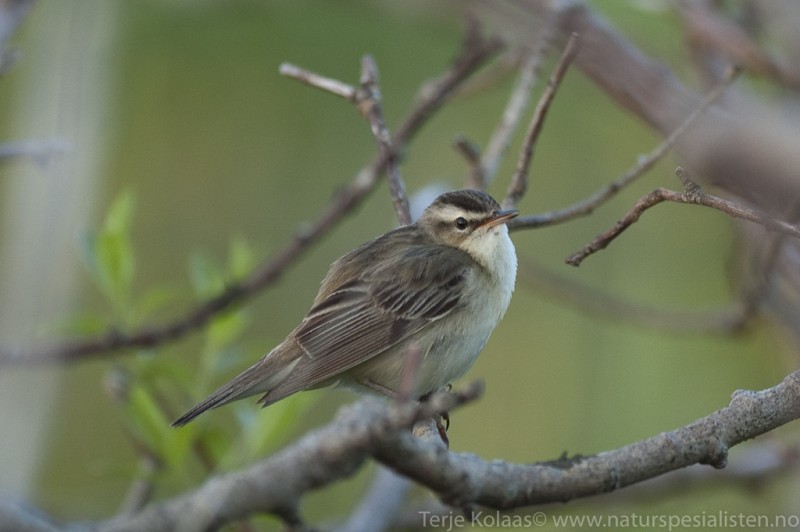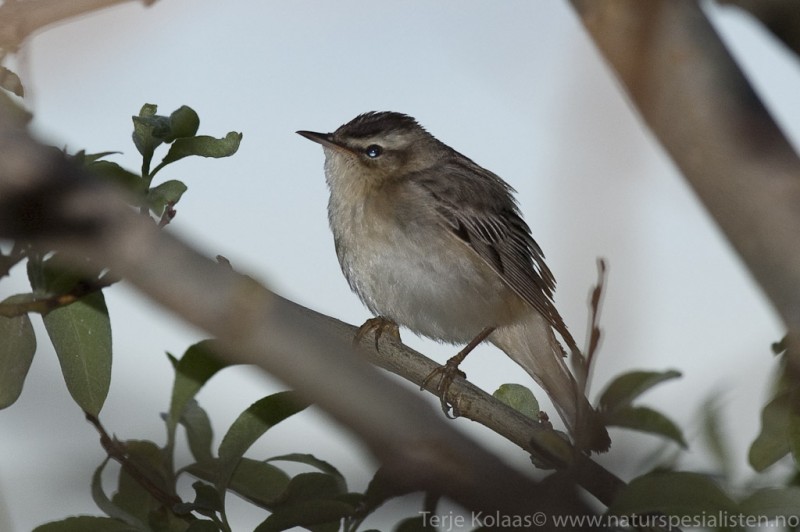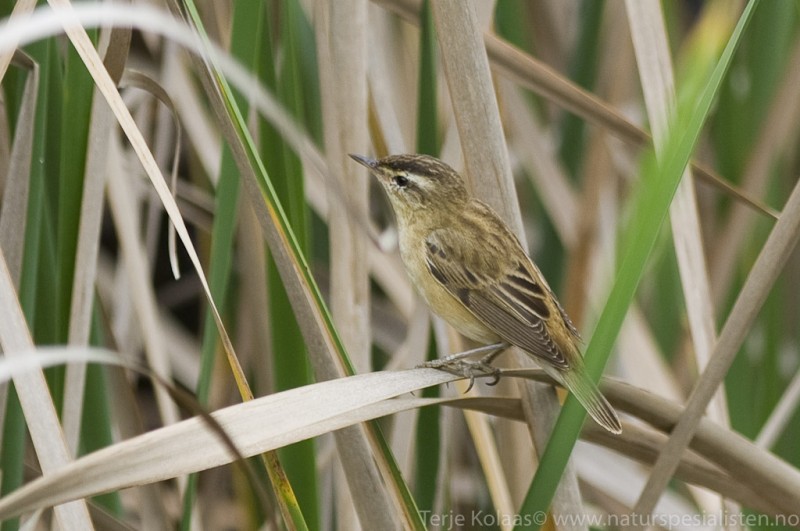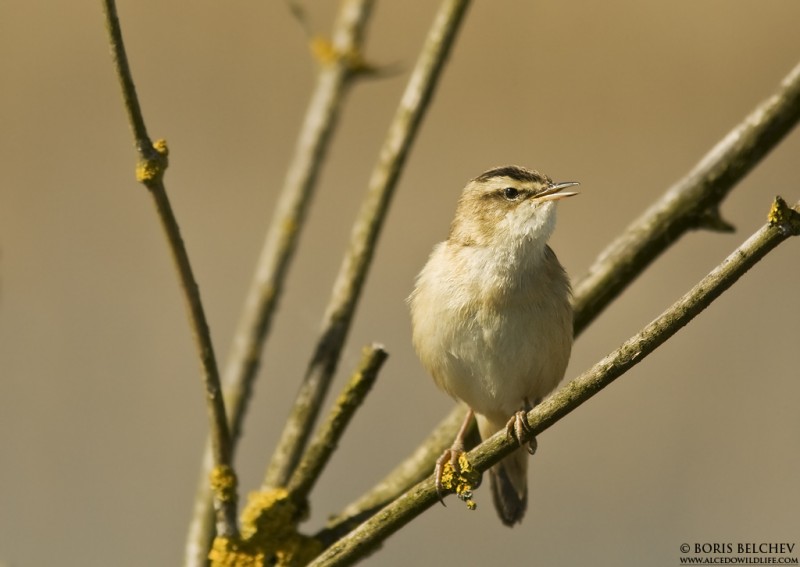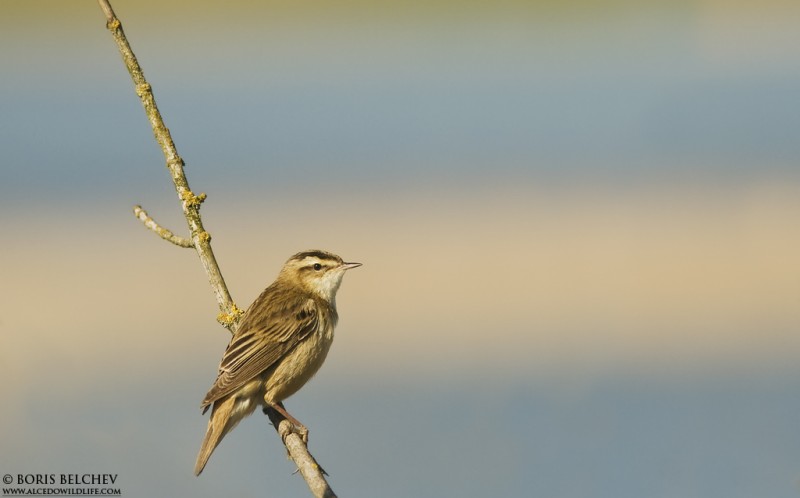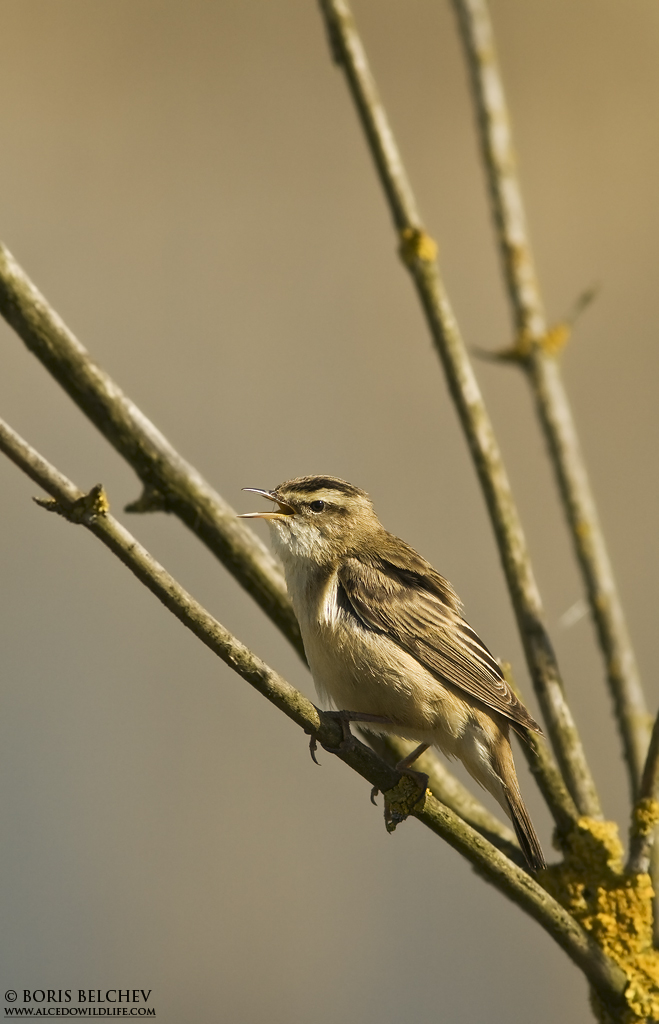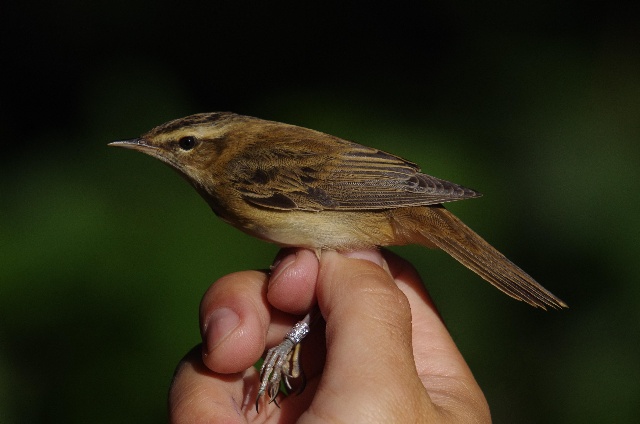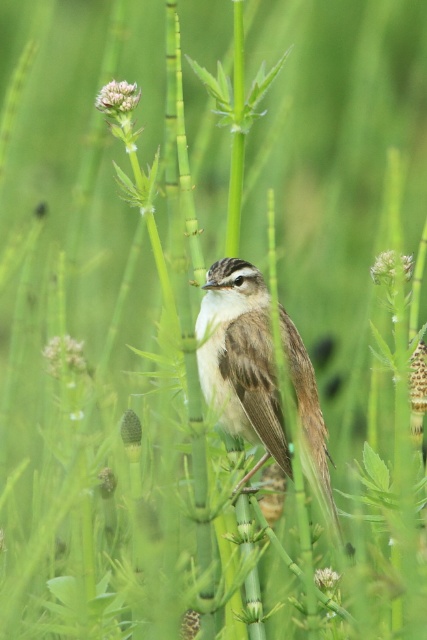Whinchat (Saxicola rubetra)
Sedge Warbler (Acrocephalus schoenobaenus)
Small member of the thrush family, with erect posture and large head. Distinct white or buff supercilium in all plumages. Base of primaries shiny white in adults, especially adult male. Coarsely spotted buff rump. Base of tail with white triangular patches. Juveniles with white speckles on upperparts and whitish throat. Lacks the white base of primaries, but supercilium bold.
Sound:Contact call resembles many of it relatives. A short, soft "peeu", followed by a hard "check" (like hitting two rocks together). The "peeu"-sound is depper and more resonant than similar sounds by Wheatear and Stonechat. Song variable with lots of mimicry. The short phrases starts with dry, rattling or sneering trills, followed by clear whistling notes and expert mimicry. More varied, both in tone and tempo, than both Stonechat and Wheatear.
Song:
Distribution:
Xeno-canto: map
Ecology:Birdlife ecology
Links:
Observation.org Latest observations
Image search Flickr NB! May give other species
CCSmall and compact, brown warbler with strong supercilium and streaked back. Crown dark with faint streaking, contrasting with broad supercilium. Rump unstreaked and warmer brown than back and tail. Juveniles with faintly streaked chest. Long primary projection. Body shorter and more compact than Reed Warbler. Easiest Achrocephalus to see in the region. Often sings from exposed branch or reed, is inquisitive and not very shy.
Sound:Alarm call a hard "check". Anxiety call a dry and rolling "rrrrr". Song vigorous and varied. A mixture of musical sounds, expert mimicry and characteristic harsh and strident calls. Not as rhythmic and evenly paced as Reed Warbler, but varies tempo a lot.
Song:
Distribution:
Xeno-canto: map
Ecology:Birdlife ecology
Links:
Observation.org Latest observations
Image search Flickr NB! May give other species
CC
 English
English Albanian
Albanian
 Armenian
Armenian
 Bulgarian
Bulgarian
 Catalan
Catalan
 Croatian
Croatian
 Czech
Czech
 Danish
Danish
 Dutch
Dutch
 Finnish
Finnish
 French
French
 Georgian
Georgian
 German
German
 Greek
Greek
 Hungarian
Hungarian
 Italian
Italian
 Latvian
Latvian
 Lithuanian
Lithuanian
 Macedonian
Macedonian
 Norwegian
Norwegian
 Polish
Polish
 Portuguese
Portuguese
 Romanian
Romanian
 Russian
Russian
 Sami : Lule sami
Sami : Lule sami
 Sami : North sami
Sami : North sami
 Sami : South sami
Sami : South sami
 Scientific names
Scientific names
 Serbian
Serbian
 Spanish
Spanish
 Swedish
Swedish
 Ukrainian
Ukrainian


